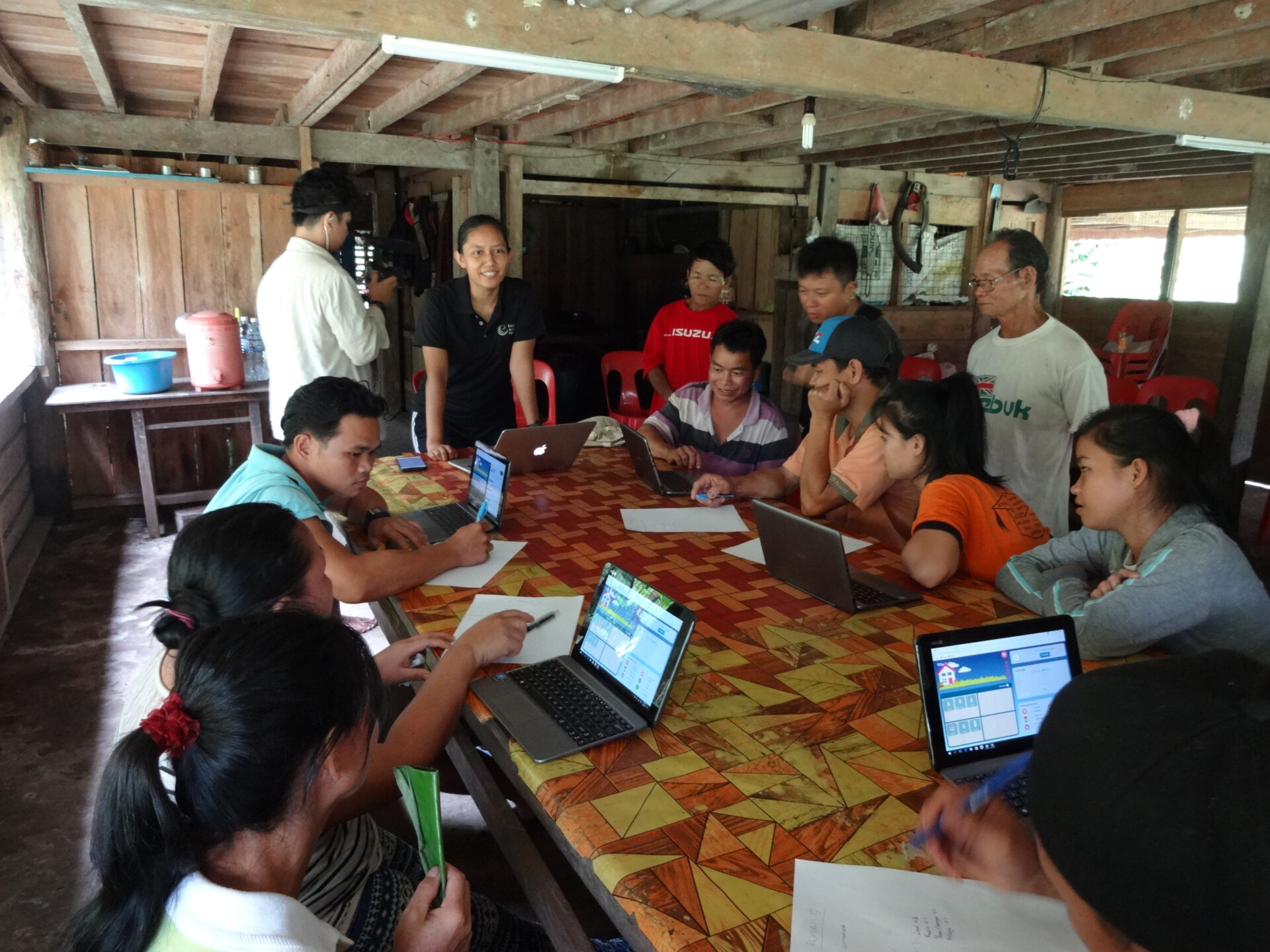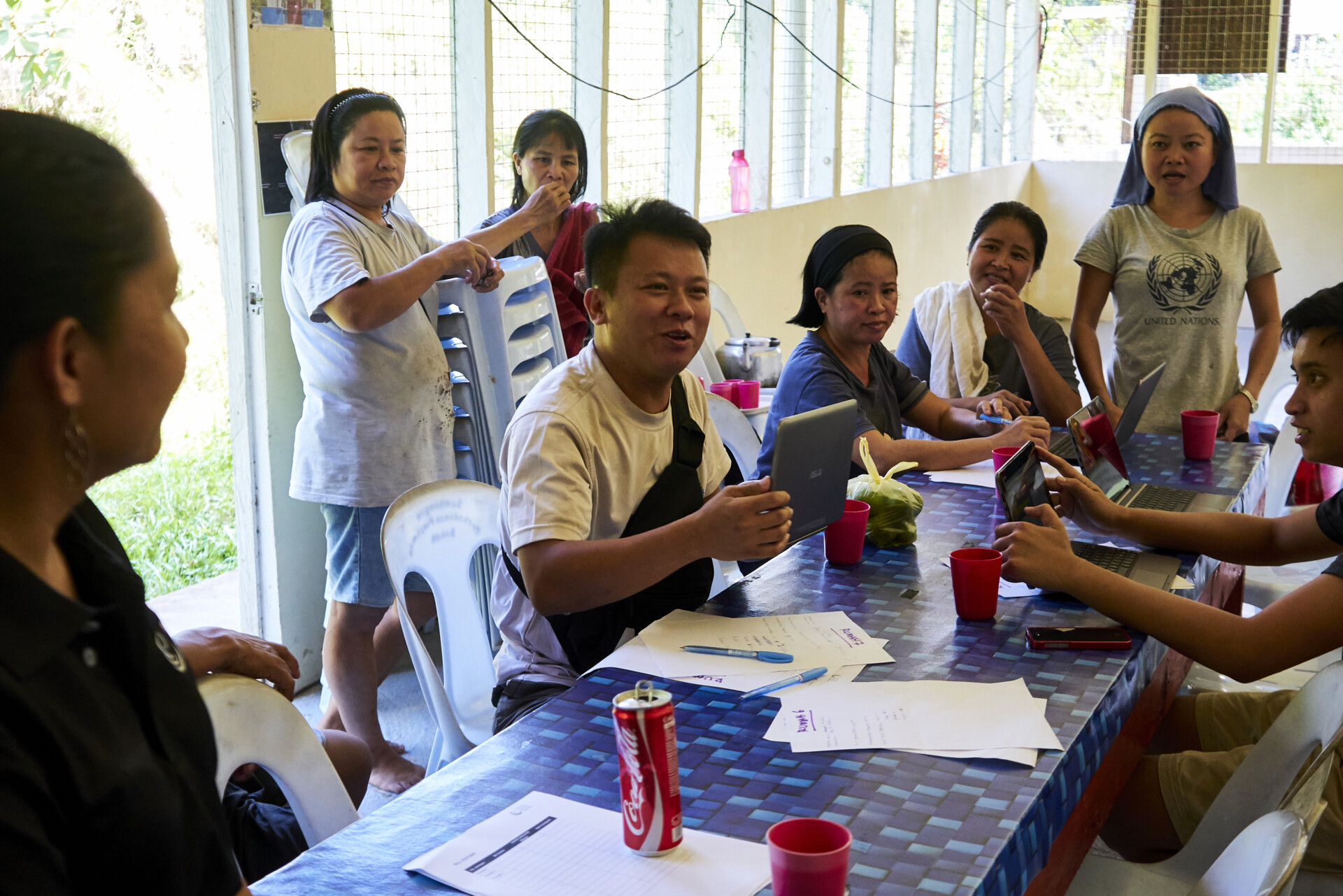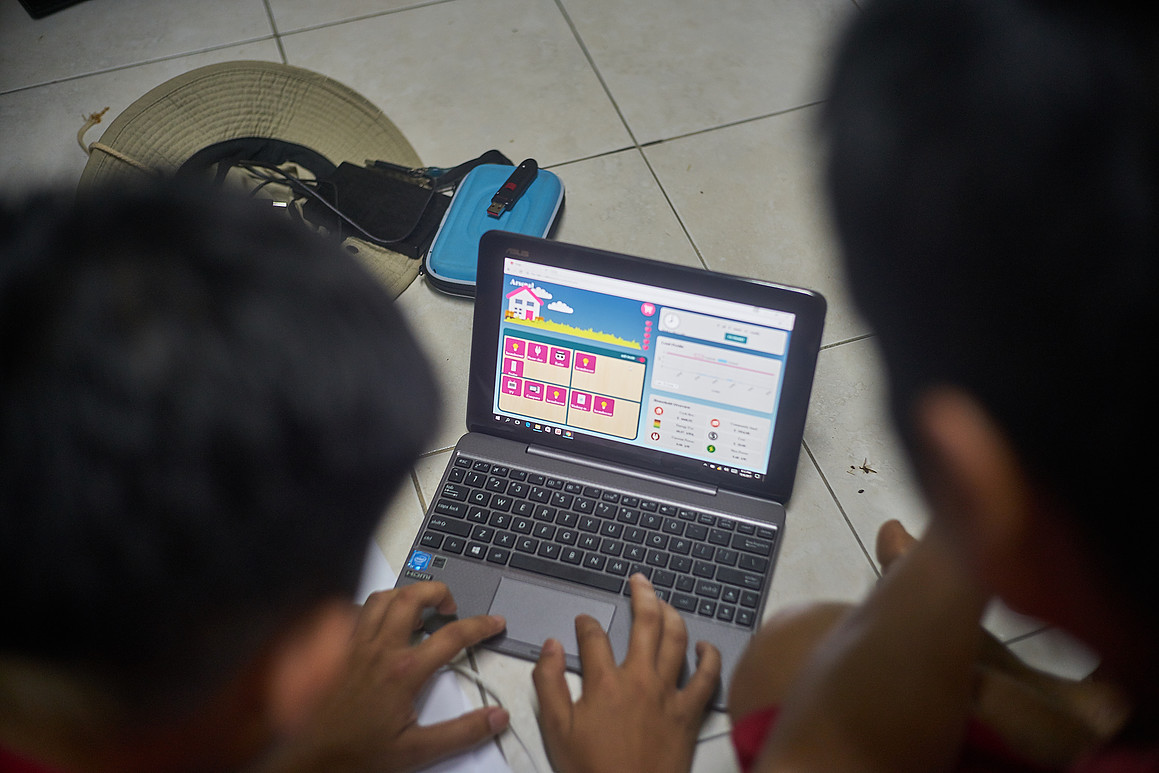To increase community understanding of mini-grid design, management and operation
The project applied a novel gaming approach to building community energy systems. It emphasised participation, collaboration and capacity-building within communities.
EXCHANGE NEED AND OBJECTIVE(S)
Conventional minigrid planning tends to limit the participation of households and communities and excludes social and organisational success factors. A lack of community engagement often leads to poor system design, and absence of local maintenance, system abandonment and limited community benefit. Thus, planning methods and tools need to be improved and expanded by including communal knowledge resources in the overall process.
The project’s objectives were:
- To increase communities’ understanding of minigrid design, management and operation and to incorporate users’ input and knowledge into system design and management.
- To demonstrate The Minigrid Game as a participatory planning tool and to foster knowledge exchange on community engagement among the practitioners.
The Minigrid Game consists of a roleplaying game where community members come together to simulate household energy consumption and make energyrelated individual and collective decisions. These may include, for example, buying appliances, managing finances to pay electricity bills, setting energy tariffs or developing community infrastructure and services.
A facilitator plays the role of the minigrid operator and manages system-wide operations while facilitating discussions and collective decision making. The cooperative game can only be won if the community chooses a minigrid system of an appropriate size and sets a tariff that prioritises the recovery of system costs, taking into account the ability to pay. The community must also limit its energy consumption within the capacity of the system.

This gaming approach helps to ensure the system that is ultimately designed reflects actual energy needs as well as future expectations of populations.
PARTICIPANTS & TARGET GROUP(S)
Three workshops were held with participants from three rural minigrid communities in East Malaysia. A fourth workshop was held online with remote participation from energy practitioners from the Southeast Asian member organisations of the Hydro Empowerment Network (HPNET). The project also reached out to the wider energy access community. The workshops were organised and facilitated by ENACT.

ACTIVITIES
The knowledge exchange consisted of three main activities. First, a series of three community minigrid planning workshops were held in the Ulu Papar region of Sabah, Malaysia. Through these workshops, local residents played and used The Minigrid Game tools and processes. Prior to the community workshops, the project team visited households in all three villages to conduct social mapping activities in the form of informal discussions. The information gained was used to calibrate the game parameters and to guide the gameplay process during the village workshops.
Second, an online workshop and knowledge exchange session was held for South and Southeast Asian practitioners from the Hydro Empowerment Network (HPNET). The online workshop included a presentation on the gaming process, video recordings from the village workshops, a practitioner knowledge sharing session and an online gameplay of The Minigrid Game.
Third, an active online campaign was implemented to reach the wider energy access community. This included a dedicated website on The Minigrid Game process, as well as videos and social media posts highlighting the community minigrid planning workshops. The aim was to generate interest in future knowledge exchange activities.
RESULTS & IMPACT
A total of 60 community members directly participated in the gaming workshops. Ten other community members attended the sessions but did not participate directly. The community workshops were well received and the three communities found the gaming process novel, engaging, easy to use and fun.
Community members reported an improved understanding of their individual versus collective electricity consumption and the capacity limitations of their minigrids. They also found the game useful for practising household energy budgeting and methods for improved system cost recovery. Workshop participants were keen to repeat the exercise with other members of the community in order to explore and apply further ideas and decisions related to minigrid management and operations.
The workshops highlighted strong demand for adaptable tools and processes that enable communities to lead their own energy planning.
LESSONS LEARNED
Through social mapping and game facilitation, the project team was able to observe how community members interacted and made individual and collective decisions that were consistent with their community’s protocols or codes of conduct, value systems and existing governance structures and institutions.
The social mapping activity was a key success factor in equipping the project team with sufficient knowledge of the local context, including issues and challenges to address via the game. While the three communities found the gaming tool easy to use, they suggested improvements for a more interesting and user-friendly interface and exciting experience. The participants’ feedback and suggestions have been documented and incorporated into ongoing and future development of The Minigrid Game tool.

To fully realise the potential of The Minigrid Game approach, the workshop activity should be followed by continued community engagement. Hence, game facilitators should have good working relationships with communities and be able to offer continuous support and monitoring of the changes initiated by the Games Workshop. An implementation plan for improved minigrid management and operations must be put into place by the community. Where there is no energy committee or committed energy system manager, steps must be taken to fill these roles.
You can find the detailed summary of this project for download on top of this page!
Project Summary SN_019

Projects with same technology
Low Head Micro Hydropower Systems for Application in Poor Villages in the Amazon Region
Improve the living conditions of the village population through access to modern energy
Mainstreaming biogas power as an off-grid electricity generating source in Sri Lanka
To develop and establish procedures and mechanisms to make electricity generated from biogas a feasible option for rural off-grid communities in the Sri Lankan dry zone
Projects in same country
Exchange: Waste to Wisdom: Supporting Biodigester Practitioners in South East Asia
This knowledge exchange activity aims to address the technical gaps in organisations in Malaysia and the Philippines by providing them with the skills to install and operate biogas digester systems efficiently and affordably.
Exchange: Improving the Sustainability of Micro-Hydropower Projects: Development of Knowledge-Sharing Tools
The purpose of this exchange is to increase the technical and economic sustainability of micro-hydro projects.